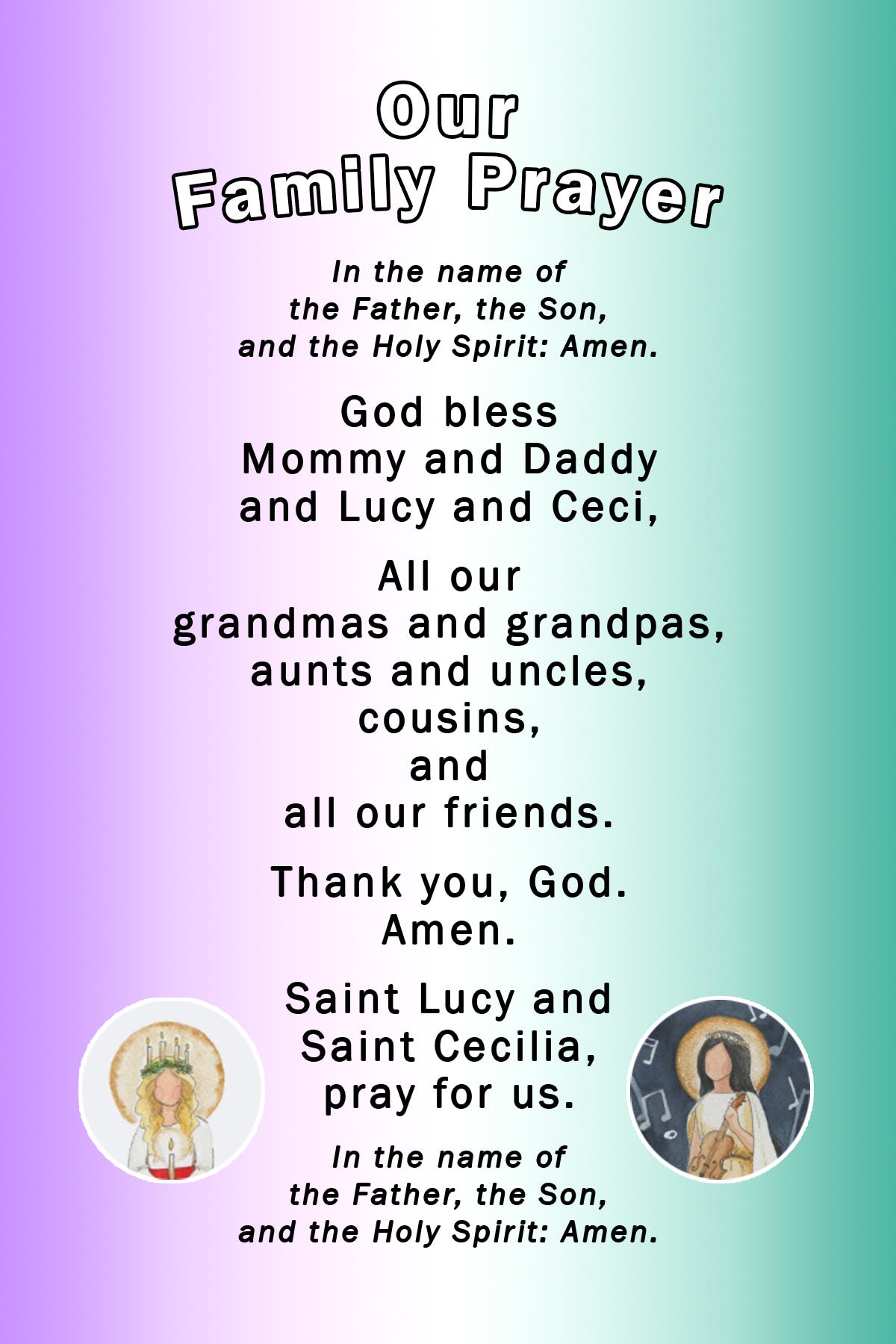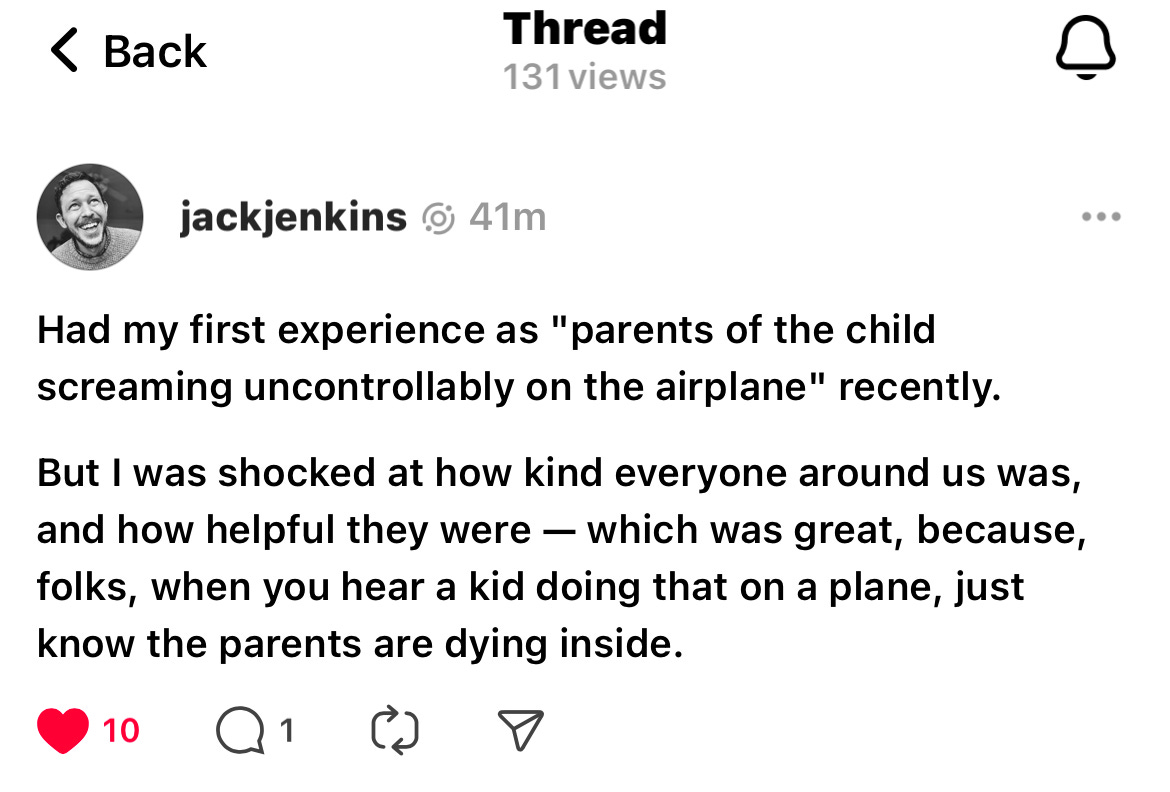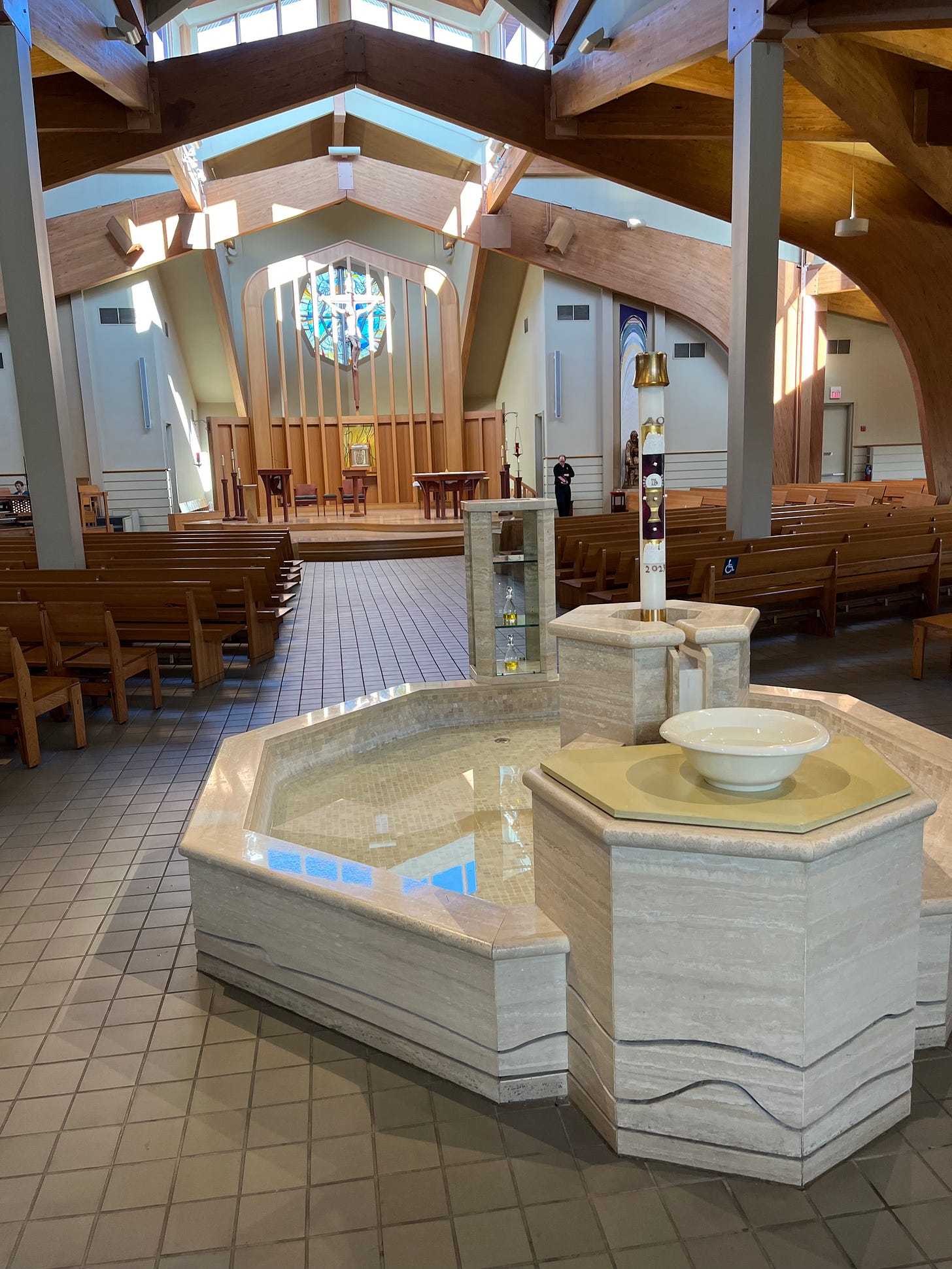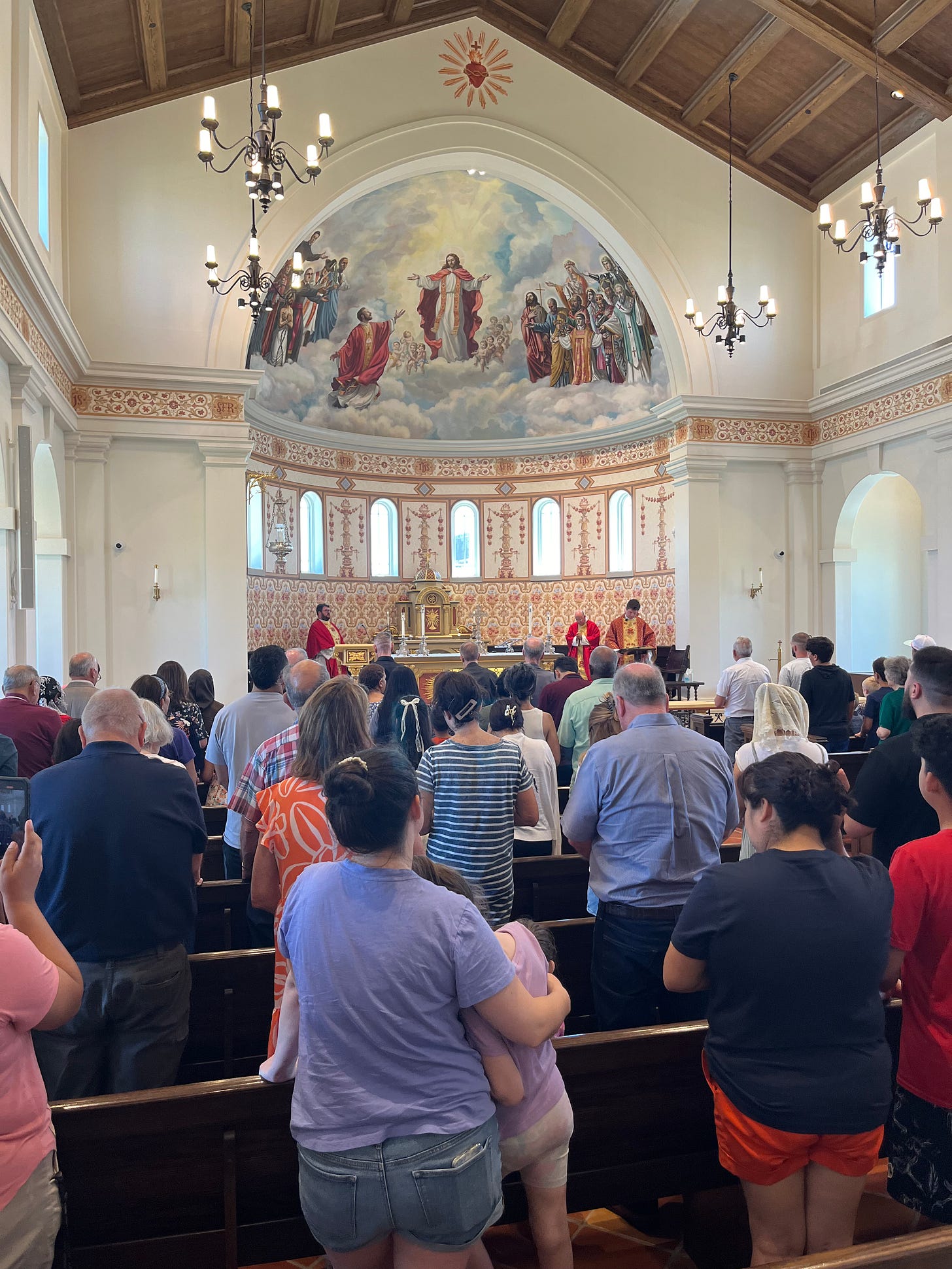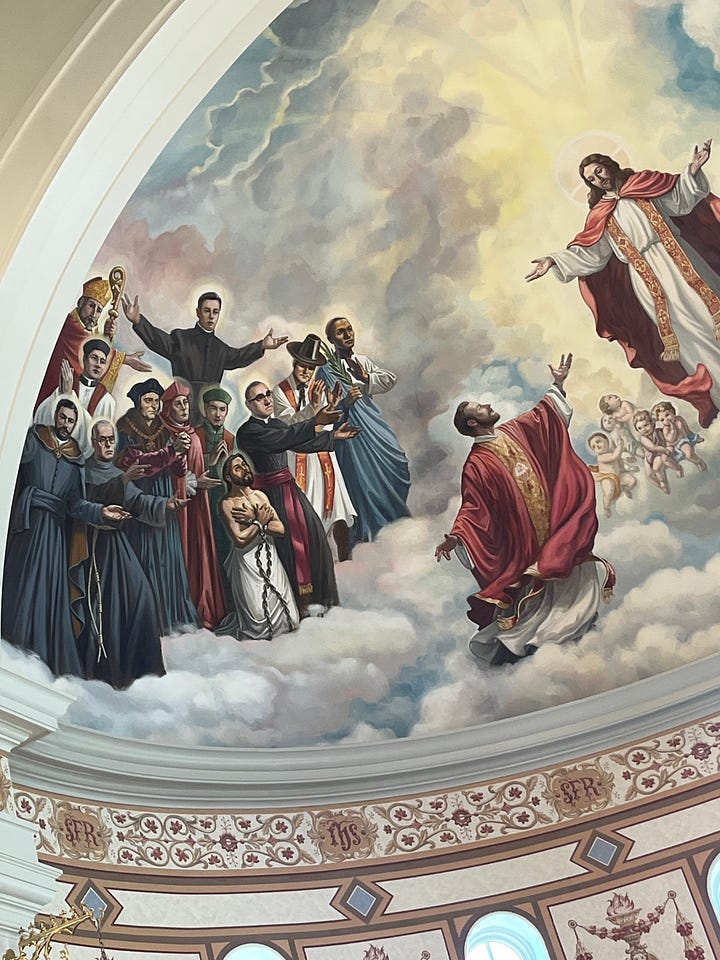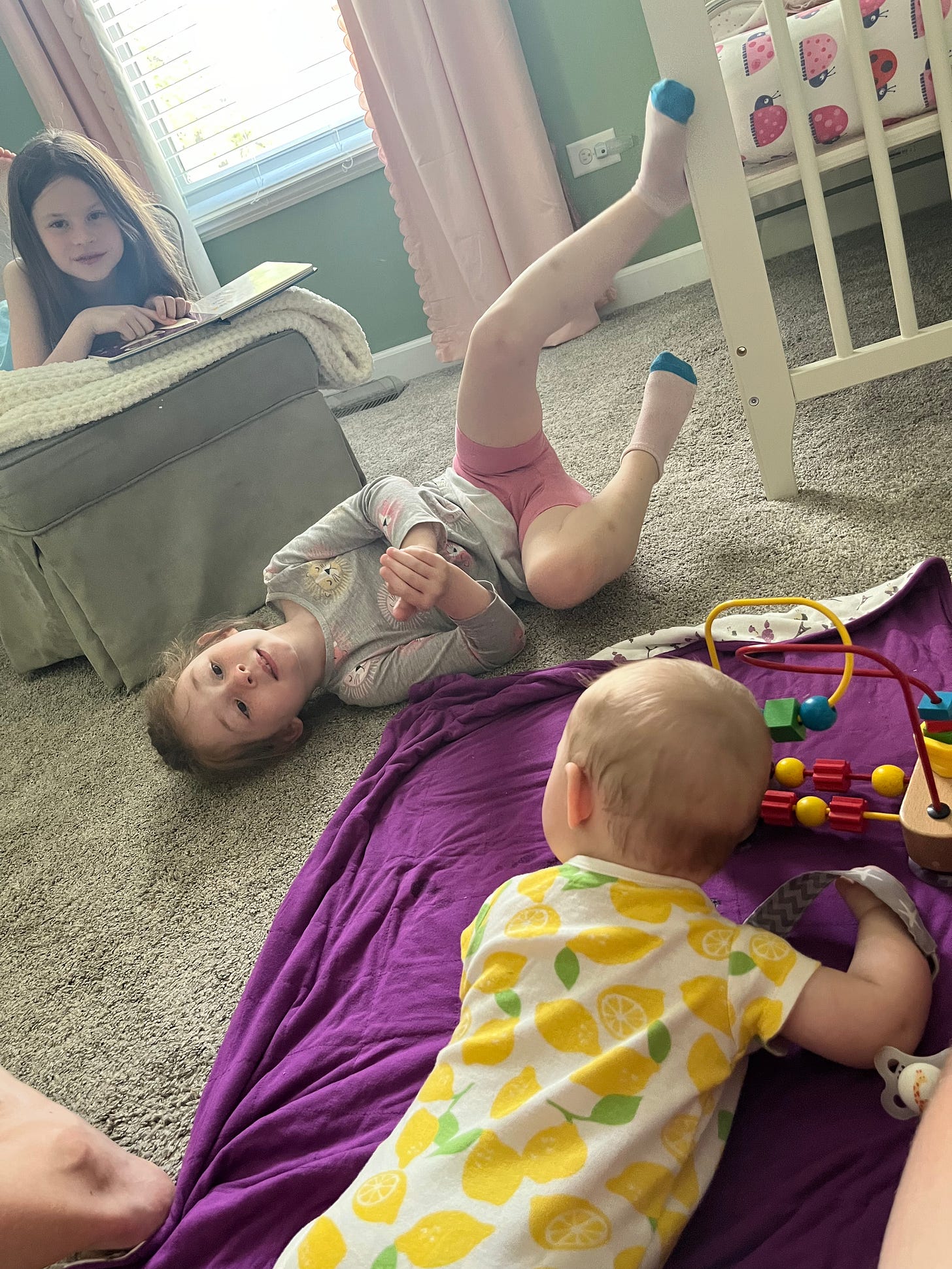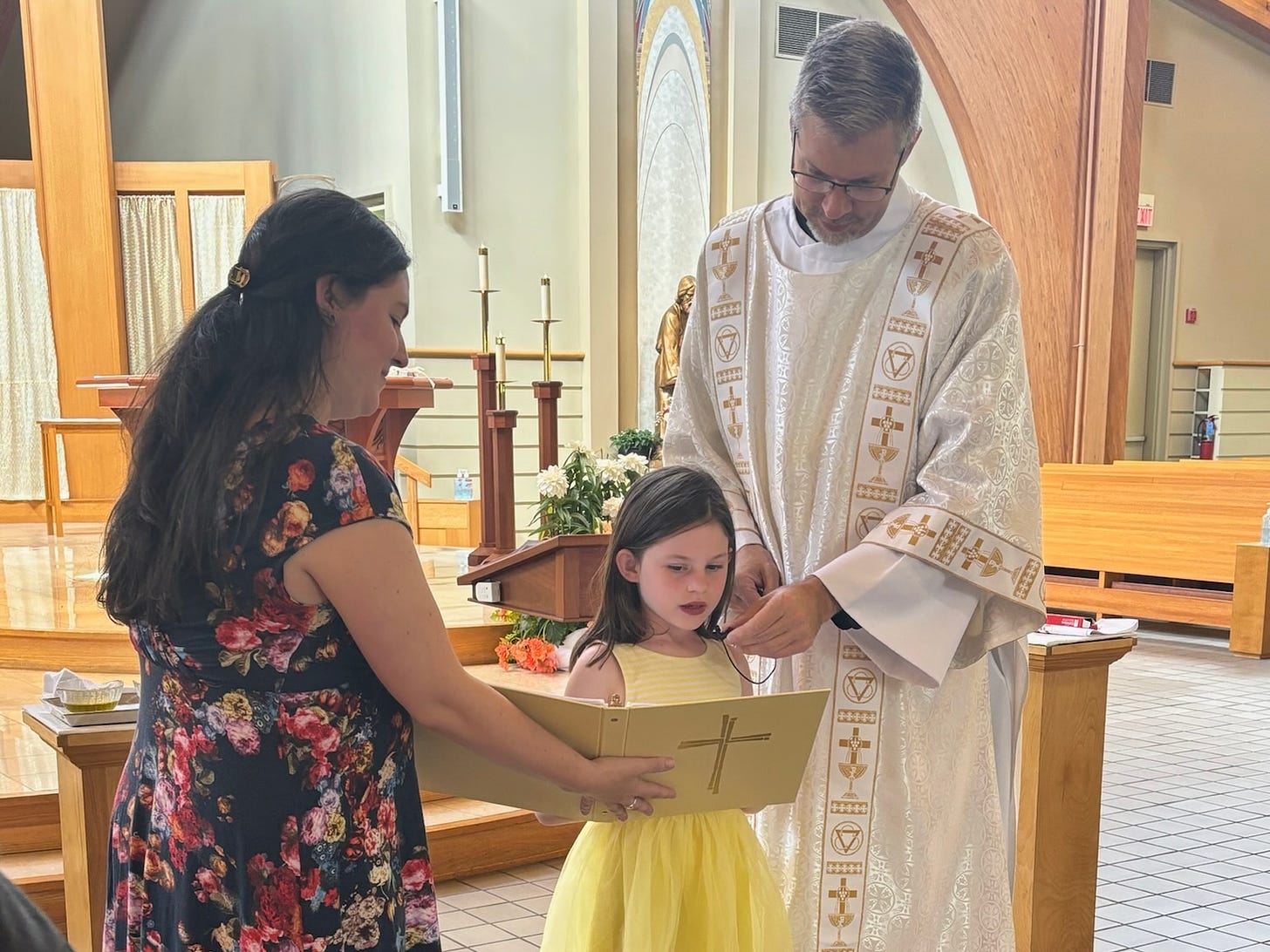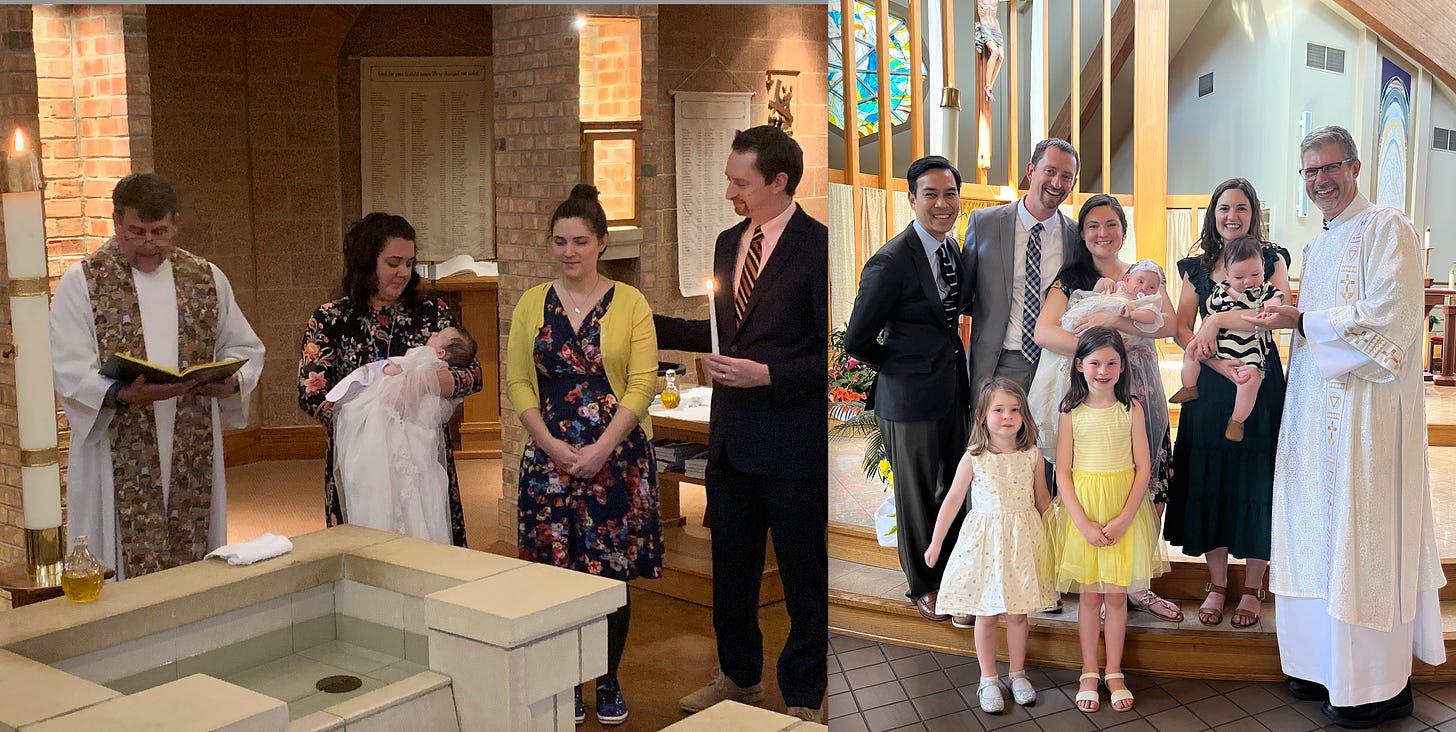by Dan Masterton
This article was originally published on August 6, 2024.
When I was in middle school, my friends and I played in a 3-on-3 basketball tournament once a year. We got to choose teammates, name our team, design a jersey (read: go to a store where they hot-pressed felt letters on to blank tees for us), and coach ourselves. Long live Insert Team Name Here! And the shirsey I made in 7th grade that I still wear today.
The biggest hurdle for us kids was the very early start on that Saturday — often like 6:30 or 7am (which, as I read it as a 35-year-old father of three, feels like a decent night’s sleep) — and getting up and ready and out the door to the high school where it was held was… tough. But we did it!
We loved playing, and there was a buzz and excitement in the air, even if the sun was still coming up. The teams clustering all over the hallways and gyms, the officials manning the scoreboards and refereeing the games, the zoo of parents and siblings and friends huddled around the courts — all of it was more than enough to wake you up and get your juices flowing. Each year we played, we had a lot of fun.
If you’re worried I may launch into a pained comparative metaphor about how the life of faith is like 3v3 basketball, rest assured: I will not. The relevance here is that this special occasion proved my capacity to rise early and get engaged quickly.
One Sunday, sometime in eighth grade, I was moving slow, not getting out of bed or moving toward being ready for 9am Mass with my family. My dad came into my bedroom to inject some urgency into my lethargy, which I did not welcome. In my tweenaged wisdom, I declared to him that going to Mass so early and so tired made me “an empty vessel.” Not sure how I reached for and located such biblical language, but my argument was that it was not worth going to Mass when I was so sleepy.
Oops.
My dad is not one to give speeches or pontificate; he was not one to read anyone the riot act or go all red-assed on us. In our family, he leads by example and by sparse, simple statements, sometimes with head tilted or eyebrows raised. He had an easy rebuttal for me this morning, “Well, I don’t think you were an empty vessel when you got up to play in the tournament.”
That shut me up! Off I went, begrudgingly, to get ready for Mass.
In our house growing up, there was never a question of whether or not we were going to Mass. Occasionally, there was a question about which Mass we’d attend. Sometimes, my dad and I played basketball with his friends on Sunday mornings and went to 11:30am Mass later; sometimes, we went to Saturday evening Mass to avoid a conflict with an early family party or the noon basketball or baseball game coming up; each fall, home games for the Bears often meant dad and one son hitting the 8am Mass before heading downtown; on rare occasions, we’d count a wedding Mass on a Saturday as good enough. But in our week-in-week-out lives, we were always going to go.
I liked going to Mass because it was familiar, consistent, insightful, renewing, and joyful, so I internalized this habit as a teenager. When my friends had sleepovers after high school dances, I’d get up in time to make the 11:30am at my parish the next day, or occasionally if we had the Monday off, I’d go to daily Mass on Monday as a sort-of catch-up piety for missing Sunday. When I was in college, I sang in a choir that was always ministering on Sundays and Holy Days, and I was glad to be part of it. When I set out as an independent adult, I’ve always registered at a parish and made a point of freely choosing to go every Sunday and Holy Day.
And I can’t say that I’ve ever been shaky or skeptical as I sustained this habit.
Then came marriage, and working with a partner to build habits as a couple and eventually as a family. Then came kids and the x-factors and wild cards of their little lives, their phases, and their dear microbiomes. And then came COVID, with its long-lasting dispensation from in-person Mass obligations, taking in Mass on TV and online, outdoor radio Masses with communion distribution, and, frankly, many Sundays were we didn’t observe the day in any meaningful way.
So after cruising through the first 25ish years of my life with the unflinching habit of weekly Mass, these last ten years have stacked up new, layered, challenging questions — ones that take the consistency of the piety at my heart and challenge it with the realities of the daily lives of not just one person but of a family and our wider world.
If my wife just worked her assigned Thursday, Friday, and Saturday overnight 12-hour nursings shifts at the hospital, and the only Masses she can go to will delay her long-desired sleep for a few more hours on top of the piled-up exhaustion, how hard should I push for us to still go to Mass on Sunday morning? What does it mean for us to go, or not to go?
If my 15-month-old is deep in the throes of a phase where she can’t sit still, can’t stay in one place, and can’t stop screaming and shrieking, and we’ll spend most of Mass in the vestibule or outside, whether in shifts or all together, how hard should I push for us to still go to Mass on Sunday morning? What does it mean for us to go, or not to go?
If our church has reopened Mass attendance to 100 socially-distanced congregants, and they’re committed to thorough cleanings, mask-wearing, and strict enforcement of hand sanitizing throughout the weekend, but the COVID transmission is super high and our kids remain unvaccinated, how hard should I push for us to still go to Mass on Sunday morning? What does it mean for us to go, or not to go?
If we just traveled by car and plane and car, took part in Friday night and all-day Saturday wedding events for a secular ceremony, only got ourselves and our kids to bed quite late on Saturday night, and there’s a mid-morning breakfast sendoff on Sunday, how hard should I push to get everyone up and going to Mass on Sunday morning? What does it mean for us to go, or not to go?
If we’re on vacation with our closest friends and our friends’ kids, and we just enjoyed a great “house Mass” all together on Friday afternoon with a friendly visiting priest, and kids from half the families are struggling through sick bugs and anti-nap fits as we prepare to head to the Saturday evening Mass, how hard should I push for us to still go to Mass? What does it mean for us to go, or not to go?
Let me start here: left to my own devices or in a situation where I’m choosing freely only for myself, I will always go. Unless I’m horribly ill or genuinely and irreconcilably conflicted against any and all Mass times, I will make my way there. Tired, weary, or worse, I will be there because I think it’s important, because it feeds me, and because sends me forth in the way I need to go.
But how do I bring that core rigidity into my relationships? How do I work out our habits with my wife? How do I model and practice and explain the habit to our children? How do I receive and respond to family members and their various habits? How do I receive and respond to friends and their various habits? Most importantly, to what extent do I soften the stance I believe is right when I find disagreement, especially with people whose faith and character I otherwise hold in highest regard?
I wanted to crowdsource this a little, and I quickly found that I am the willing victim of selection bias. Most of my friends, close ones and more loosely acquainted, are Catholic, and many of them spoke up in witness to their similar habits, albeit with a mix of motivations and caveats.
“I view our family obligation as unconditional. It grounds and sets the tone for our entire week.”
“Like you said, it’s never been a choice to me. Lately, I’ve started saying, ‘God asks for one hour a week, and you have 167 other hours to do other things.’”
“With 3 young kids, we go every week, even on vacation, unless someone is pretty sick. Then maybe that person or some of us miss. If we are traveling all day and it's near impossible to achieve, we may miss it, but we generally find churches while traveling.”
“I fell off for many years but recently started going every Sunday. Reading Gift from the Sea gave me a perspective that makes it seem so much more inviting. The author holds the sabbath as a gift, more than an obligation.”
'“I am very strict about going on Sunday. My rule is unless there's a fever or vomiting we are there! We live in a city with plenty of options so we have the luxury of choosing a different mass time.”
“We try to go every week and schedule other plans so that we can be able to go. But we definitely do not go if any of us is sick (personal pet peeve - I cannot stand when I see sick people in church!).”
“Go more often then I miss!”
“I go nearly every Sunday and do feel guilty if I miss a Sunday. Like others, I consider Sunday Mass recommendation for our spiritual health.”
“I am less consistent about the Sunday Mass because I feel less at home at the diocesan parish I used to attend. Our diocese released a tone deaf and insensitive document with ‘guidance’ on questions regarding sexual orientation and gender identity, and it doesn't sit right with my spirit to participate in the ways that I used to. On the other hand, I now attend mass just about every other day of the week thanks to my new job. I love the community I get to pray with and I deeply appreciate the priests who preside. Life is funny and strange, but it feels like God knows how to get me where I need to be.”
“We go weekly unless someone is sick. If it's one of the kids, we will try to alternate care to get to mass for those who fall under the obligation, but sometimes that doesn't work. Even when my husband is on call for the ER, he rarely misses (he's had to leave midway through once or twice) because we are lucky enough to live somewhere that he can get to a multitude of masses within his 20 minute call radius (and working at a Catholic hospital doesn't hurt! He's definitely made it there a handful of times as well!). We care because it's what God asks of us and what the church has given us as the minimum expectation.
The range of responsibilities, commitments, and priorities in adult life bring quite the context to the question of Mass obligation and attendance — from family to work to traveling for important events and more. I appreciate the witness and fidelity of people who continue to make it a very high priority, even when things are challenging; I also have an expanded appreciation and understanding for those who sometimes do not make it happen. (And there’s a whole ‘nother pastoral conversation to have some time about how to receive people who feel unwelcome, who are no longer interested, or who no longer want to engage in prayer and worship in the Church.)
I want to offer two instances from my life — you might have guessed that my italicized hypotheticals are all too real and concrete. Maybe this can help describe the ways I’ve felt torn as I hang on to this strict piety in my heart but try to live a present, compassionate life closely with the people I love.
Earlier this year, we went to a family wedding that was totally secular and included a full slate of Friday-Saturday-Sunday activities. We were committed to several events in several places, and we genuinely wanted to be fully present for all of the celebration.
On our Catholic side of the family, some of our family members would probably say they were “raised Catholic” while others still practice their Catholicism but don’t necessarily hold to the weekly Sunday obligation quite as strictly as I do. As the agenda for the weekend came into focus, a few key family members intentionally thought of me and my desire to get to Sunday Mass each week.
I had already let go of trying to get my whole family turned around from a late Saturday night to a Sunday morning Mass (which is different that what I might have been thinking earlier in our family life) but was thinking about scooting out to get to Mass myself. I decided to tell them that I’d just miss Mass for the weekend because it felt like everyone else, including the other side of the family that did not really go to church, would have to build the Sunday plans around me. I didn’t like feeling like the monkey wrench in the machinery, so I bowed out of my usual habit to make the bigger picture work more easily.
In retrospect, I regret that choice. I wish I had made a point of finding the best choice for an early bird Mass and gotten myself in gear to get over to church. Even if I was tired from a long day, it’s the perfect time for hitting the morning coffee and enjoying an express-lane early Mass. I think even when I accept that others are choosing not to go, that my example — hopefully quiet, understated, never lorded over people or held in their faces — might be a small way to vote with my feet and stick to my piety, to live out what I desire without fanfare or drama. I wouldn’t want to anger or offend others, but I do wish I had quietly done my thing.
Earlier this summer, some of our best friends and our families gathered for our annual vacation get-together. It’s a great long weekend of catching up, playing with the growing number of kids, and feeling totally relaxed and at home because of the excellent company. We usually sketch out a lite meal plan and a few ideas for outings or games, but we keep it very sparse and lean into everyone’s strong preference to simply be together.
On the Friday afternoon, our friends’ priest-friend visited the house to help cook an amazing dinner and to hang out with everyone — and he said a house Mass! It was a neat experience for our kids, especially, who are super familiar with Mass but had never participated in it at someone’s house! It was neat, novel, and calming. I loved it.
The next day, we had planned to make the drive from our friends’ country house into town for a Saturday night Mass — about a half hour or so. Given the four families and our combined eight kids ranging from six months to seven years old, it was going to be quite the carpooling, gear-packing, kid-juggling operation. As the afternoon wore on, it turned out one dad was staying back to prepare dinner; then another couple decided they didn’t want to interrupt their son’s nap; and another couple followed suit. Then our friend who doesn’t have kids of her own also opted to stay back at the last minute when she realized the social quorum would be there.
It left me, my kids, and my wife in a bind, as we watched our last remaining friend and her kiddos load up and head out to Mass. My wife made the snap decision to stick with the plan and head to Mass, thinking it’s what I’d have wanted — which I did — but we were flustered. We don’t depend too much on hard plans when hanging with this group, but this is what we had pencilled in and people bailed out of it sort of late. As we thought about it, on the long drive there and back, we were a little bummed to miss out on two-plus hours of social time together, especially after we had shared in a daily Mass at home the day before and only get a few days a year to all be together.
While I didn’t regret going to that Mass, I felt very preoccupied and conflicted while participating. I’m glad I was able to bring it in prayer and carry it to the altar in Eucharist, but it felt like such a conflict could’ve been avoided. If I could wave a wand, we wouldn’t have gone, but it wouldn’t have been because of an instant tough choice — it would’ve been because we all talked and decided as a group to stay home together, and perhaps because we chose to maybe read the readings aloud as a group or go for a prayer walk while we missed Sunday Mass. I regretted the conflict, the tension, and the split decision. And I know that my rigid piety, and my wife’s familiarity with it and deference to it, played a large part in that. And that’s what I want to avoid.
So how hard should I push? And what does it mean to go, or not to go?
My reflection starts with myself. I want to maintain a pretty absolute piety. Sundays and Holy Days? I always want to be there. Missing Mass feels like declining to take a prescribed medicine that will ease my symptoms or treat an illness; it feels like choosing not to eat because even though you’re hungry you can’t get yourself going enough to shop for groceries or cook or even go pickup food that you know will feed that need; it feels like opting not to exercise even when your body feels limber and the weather is great and you have the free time. I want the Scriptures; I want the Eucharist; I want the time and space; I want the context of communal prayer; I want the palpable Spirit and grace of Mass.
My reflection moves to my wife and kids. I want them there with me for them to get their own fill of these same things. I want my kids to see sacramentals in community and Word and Eucharist and inch their way toward exploring the Mystery (and they don’t really have a choice anyway — ha!). I want my wife to sing the songs I’m singing, hear the readings I’m hearing, receiving the Eucharist I’m receiving, and bring these things home with me into our shared life we’re living. The thing I’ve learned is that marital decisions that aren’t made communicatively, collaboratively, and earnestly are wobbly and ineffective. And sometimes, there are weekends where it is trickier for us to all get to Mass and go together. I don’t have a prescriptive approach to handling this. But where I might have previously been inflexible and unreceptive, I now am prepared and interested in a conversation — and similarly uninterested in dictation or uncollaborative rigidity.
My reflection moves to my friends and family. “Now who is going to harm you if you are enthusiastic for what is good? But even if you should suffer because of righteousness, blessed are you. Do not be afraid or terrified with fear of them, but sanctify Christ as Lord in your hearts. Always be ready to give an explanation to anyone who asks you for a reason for your hope, but do it with gentleness and reverence.” (1 Peter 3:13-16)
The same ideals apply from my own heart and my family life, but the interaction, influence, and collaboration with others won’t be the same. We’re more in parallel than truly overlapped in deciding things. So for them, I take more of this tack: I love Mass, and I will always go to Mass. Do you like Mass? If not, why? What confuses you? What puts you off? What do you need to understand better? I want to share, by example and by conversation, how Mass is part of the reason for my hope.
I love breaking down the Mass, not just the ways I like and enjoy it but also the ways it is packed full of symbolism, meaning, and communal ritual. Yet as much as that catechesis or trivia might be a good little dialogue, it might be a superficial exercise, just a chat. I think the most important question we can ask — of our partners, of our children, of our family members, of our friends, of our acquaintances, of others curious about Catholicism — is simply, “Will you come with me?”



